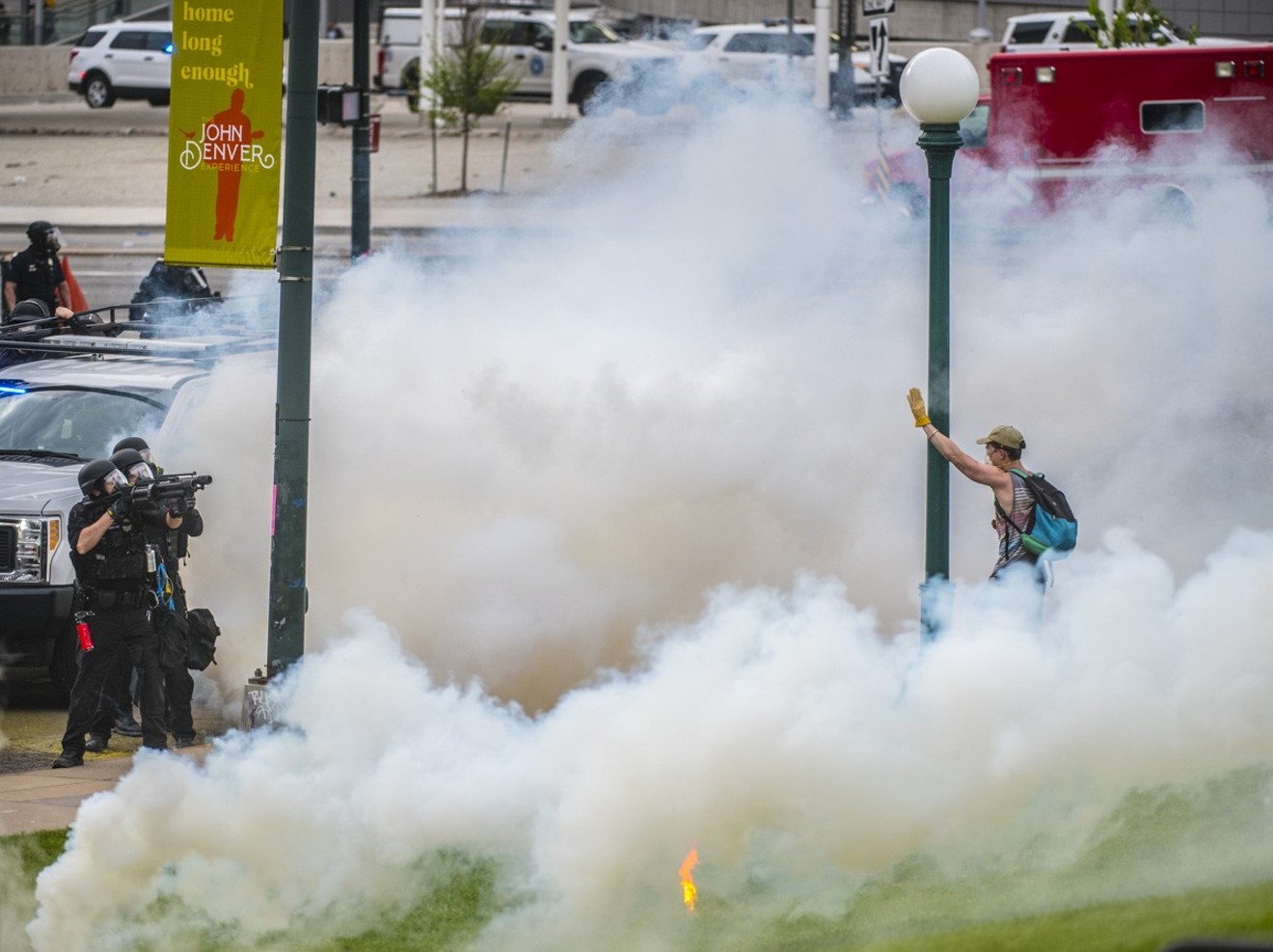On May 21, a community-led task force established in the wake of the Denver Police Department's heavy-handed response to the George Floyd protests issued a series of recommendations that could transform the City of Denver's approach to public safety.
“Our goal is to create a community-based public-safety model that protects and heals the community from centuries of violence and systemic oppression,” explains task force coordinator Robert Davis of the Greater Metro Denver Ministerial Alliance.
Along with Davis, other members of the task force — which was funded by the Rose Community Foundation and Caring 4 Denver — include Xochitl Gaytan, who serves as co-chair of the Colorado Latino Forum, and Jill Locantore, executive director of WalkDenver. Various nonprofits also assisted the task force in its research, as did groups like the Vera Institute of Justice. Representatives from Denver City Council, the Denver District Attorney's Office, the Office of the Municipal Public Defender, the Office of the Independent Monitor and the Office of the Colorado State Public Defender also participated in the task force's work.
The task force had a mandate to "reimagine policing and public safety," which is exactly what it does in many of the 112 recommendations shared in the report. The recommendations, which were unanimously approved by the group's members on May 11, include potentially major shifts for City of Denver policy, such as establishing an automatic-termination clause in cases "where life is lost at the hands of law enforcement where the victim was unarmed." In recent years, the Denver jails have seen several in-custody deaths that resulted from use-of-force incidents involving sheriff deputies and unarmed detainees; deputies kept their jobs after the incidents.
The report also recommends that the Office of the Independent Monitor, the city's law enforcement watchdog, be made more powerful by receiving subpoena power and "unfettered access to all departmental documents and systems."
Furthermore, it recommends that Denver City Council and the Citizen Oversight Board gain appointment authority for the Independent Monitor position rather than have that power continue to rest with the mayor.
The report also calls for a different approach to homelessness, including ceasing all city-sanctioned sweeps of encampments set up on public property and investing "all cost-savings into Safe Outdoor Spaces, trash pick up, portable toilets, case management, and other harm reduction strategies." It also recommends that Denver decriminalize "quality-of-life offenses, survival crimes, and other petty infractions such as drug use, and public intoxication," and permit safe-injection sites in the city.
In response to the chaotic law enforcement actions during the George Floyd protests last summer, the report recommends a prohibition on the use of mutual aid from neighboring law enforcement agencies for "Denver-based protests and riots if there has not been documented proof of cross-training of officers on Denver policies, procedures and ordinances." Eighteen neighboring departments provided assistance to the DPD during the George Floyd protests, even though Denver had no mutual-aid agreements related to crowd control with these agencies. Then-Independent Monitor Nick Mitchell criticized the use-of-force policy mismatches in a December 2020 report about the police response to the protests.
And the task force report also calls for the prohibition of the "use of riot gear, weapons and militarized approaches or responses during peaceful protests or demonstrations."
The Greater Metro Denver Ministerial Alliance first proposed the idea of setting up a task force in early June 2020 during a meeting with Mayor Michael Hancock. Not long after, Hancock expressed support for its establishment, and Murphy Robinson, the head of the Denver Department of Public Safety, participated in the task force throughout 2020.
But in January, Robinson withdrew all Public Safety personnel from the task force, complaining in an email to Davis that the task force comprised people handpicked by Davis and that the group was "little more than a personal sounding board for political views and rhetoric." Robinson took particular issue with the fact that the task force leadership asked law enforcement personnel not to participate in a particular meeting in early January.
In an email responding to Robinson's withdrawal letter, Davis argued that the task force leadership had asked law enforcement not to participate in that meeting so that participants could "speak freely about their thoughts." Davis also denied that he had handpicked members of the task force.
The work of the task force will be discussed at public gatherings starting with a rally outside of the Denver City & County Building at 4 p.m. on Monday, May 24; find out more here.
In the meantime, according to Kelli Christensen, Public Safety spokesperson, "Director Robinson said he’s happy to receive these recommendations and is looking forward to reviewing them."
Here's the full report:
[
{
"name": "Air - MediumRectangle - Inline Content - Mobile Display Size",
"component": "12017618",
"insertPoint": "2",
"requiredCountToDisplay": "2"
},{
"name": "Editor Picks",
"component": "17242653",
"insertPoint": "4",
"requiredCountToDisplay": "1"
},{
"name": "Inline Links",
"component": "18838239",
"insertPoint": "8th",
"startingPoint": 8,
"requiredCountToDisplay": "7",
"maxInsertions": 25
},{
"name": "Air - MediumRectangle - Combo - Inline Content",
"component": "17261320",
"insertPoint": "8th",
"startingPoint": 8,
"requiredCountToDisplay": "7",
"maxInsertions": 25
},{
"name": "Inline Links",
"component": "18838239",
"insertPoint": "8th",
"startingPoint": 12,
"requiredCountToDisplay": "11",
"maxInsertions": 25
},{
"name": "Air - Leaderboard Tower - Combo - Inline Content",
"component": "17261321",
"insertPoint": "8th",
"startingPoint": 12,
"requiredCountToDisplay": "11",
"maxInsertions": 25
}
]












